Imagine if you could fall asleep easily and quickly.
Imagine if you slept deeper and didn’t wake up several times per night.
Imagine waking up feeling rested, restored, and rejuvenated.
Well, this isn’t supposed to be a fantasy. In fact, it’s how your body is programmed to work.
Unfortunately, though, we can screw this programming up through simple, innocent mistakes.
Many people making these mistakes and, unwittingly, turn to hypnotics and sedatives to combat their sleep troubles.
This opens the door to some rather serious side effects, such as…
- Depression
- Delirium
- Nightmares
- Hallucinations
- An increased risk of infections, cancer, and overall mortality.
Not to mention problems relating to drug tolerance, which necessitates ever-increasing prescriptions and dosages.
The good news, though, is many people experiencing sleep troubles don’t need drugs to get a good night’s sleep.
Instead, they just need to change some of their daily habits and routines.
And that’s what you’re going to get from this article: 7 science-based strategies to get more and better shuteye.
Want to listen to more stuff like this? Check out my podcast!
How Much Sleep Do I Need?
In 2014, the Center for Disease Control declared that insufficient sleep is a public health epidemic.
According to polling conducted by the National Sleep Foundation, 43 percent of Americans between the ages of 13 and 64 say they rarely or never get a good night’s sleep on weeknights. Sixty percent say that they experience a sleep problem every night or almost every night.
The most common sleep problems are having trouble falling asleep, snoring, waking in the night, waking too early, and not feeling refreshed when getting up in the morning.
And the impact on our health is larger and worse than we might think.
Sleep insufficiency has been linked to auto crashes, industrial disasters, and medical and other occupational errors.
It increases the mortality and the risk of chronic diseases like hypertension, diabetes, depression, obesity, and cancer, and it reduces quality of life and productivity.
Research shows that inadequate sleep can even slow weight loss, lead to weight gain and muscle loss, and reduce testosterone levels.
The bottom line is that your sleep hygiene is like your diet—it’s either working for you or against you, regardless of whether you realize it.
Sleep poorly for too long, and the consequences, which are unavoidable, can be dire. Sleep well, though, and the benefits can be surprisingly far-reaching.
When you give your body enough high-quality sleep, you reap the following benefits:
- Your memory improves.
- You have lower levels of systemic inflammation.
- You’re a better learner and problem solver.
- You can stick to diets easier.
- Your immune system functions better.
- Your mood is generally better.
- Your athletic performance improves.
- You’re likely to live longer.
Good sleep hygiene is like a good exercise routine: it improves your life in just about every way.
Now, we’ll talk more about good sleep habits (hygiene) soon, but first, let’s talk how much sleep should you be getting.
Sleep needs vary from individual to individual, but according to the National Sleep Foundation, adults need 7–9 hours of sleep per night to avoid the negative effects of sleep deprivation.
Since many things like diet, exercise, genetics, and age ultimately affect how much sleep your body needs, a simple way to determine what’s optimal for you is to pick a two-week period such as a vacation and go to bed at the same time each night without an alarm set.
Chances are you’ll sleep longer than usual at first if you have “sleep debt” to cancel out, but toward the end of the second week, your body will establish a pattern of sleeping about the same amount every night.
When that happens, it’s trying to tell you something: that’s how much sleep it needs.
How to Get Better Sleep
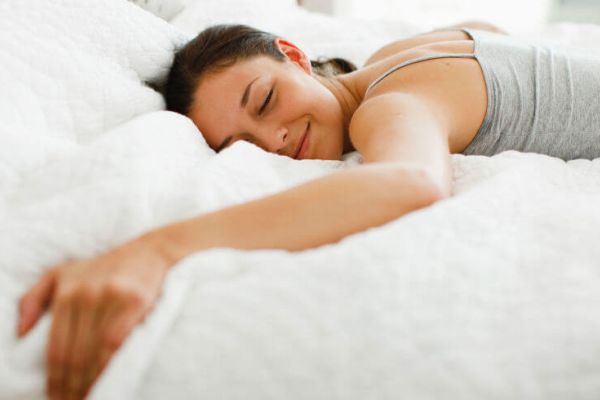
When talking sleep, quantity isn’t all that matters. We can’t forget about quality as well.
In fact, sleep quality can matter more than quantity because a smaller amount of high-quality sleep beats a larger amount of poor sleep.
For example, if you fall asleep at midnight and get out of bed at 8 AM, but wake up several times in the night and toss and turn, you’re going to feel less rested than someone that fell asleep at midnight and slept straight through to 7 or maybe even 6 AM.
So, let’s look at a variety of scientifically proven ways to improve both the quantity and quality of your sleep.
1. Avoid Chemicals that Interfere with Sleep
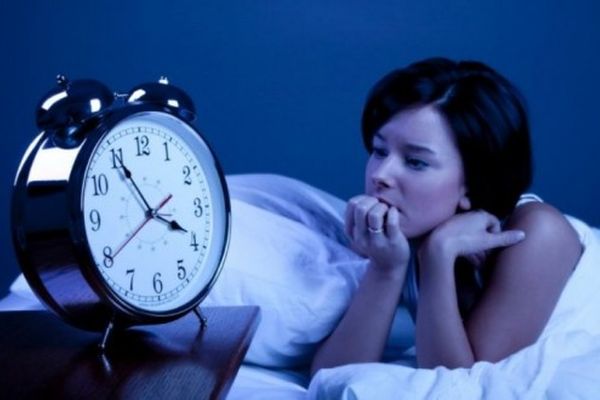
We all know that caffeine and nicotine are stimulants, but alcohol can disrupt our sleep as well. It can help bring on sleep but then act as a stimulant and increase the number of awakenings during the night.
As a general rule, don’t consume any sleep-disrupting chemicals four to six hours before going to bed.
2. Turn Off the Electronics
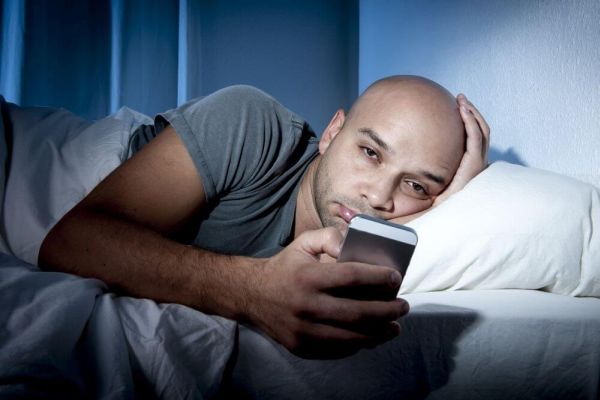
Your body has an internal “clock” that tells it when to go to sleep and when to be awake.
The hormone that most directly affects this clock is melatonin, which is produced by a small gland in the brain.
As the day goes on, melatonin levels rise, telling the body to start winding down. Levels peak at night, when it’s time to sleep, and drop in the early morning hours, when it’s time to wake up.
Your body uses light as the primary regulator of melatonin production.
When exposed to bright light, signaling daytime, melatonin production is suppressed. Dark environments, on the other hand, signaling nighttime, are conducive to melatonin production.
This simple system worked fantastically for many thousands of years…until we invented screens to stare at.
Devices like TVs, computers, tablets, and smartphones emit a type of light known as “blue light,” and studies show it’s a powerful melatonin suppressant.
So much so that research shows that simply reading an iPad for several hours before bed instead of a paper book makes it harder to fall asleep and reduces REM sleep and alertness the next morning.
There’s compelling evidence that it might be optimal to banish blue light (and possibly even electronic light in general) at sundown, but that’s a tall order for most of us.
The next best thing, though?
Don’t watch TV or use a computer, tablet, or smartphone for at least an hour before bed.
The longer you can go without a screen before bed, the better, but most people find that an hour is enough to noticeably improve sleep onset.
You should also download and use Flux.
Flux is software available for computers, phones, and tablets that adjusts the color of the light emitted by screens to the time of the day.
At night, you get a warm-colored light instead of a harsh, blue one, and research shows this is significantly better for sleeping well.
3. Exercise Regularly
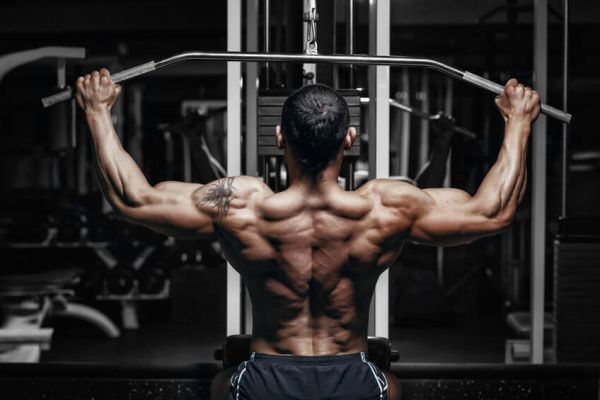
Name something in your life that you want to improve and there’s a good chance that exercise can help.
Sleep hygiene is one of those many things–research shows that regular exercise improves sleep quality in people with and without sleep problems.
It’s worth nothing, though, that while some people will reap exercise’s sleep benefits quickly, some won’t. Research shows that it can take several months of exercise to see noticeable improvements in between the sheets.
Research also shows that people respond differently to exercise done at different times of the day.
In one study, participants that exercised in the afternoon reported better sleep than those that exercised in the morning.
In another study, which was conducted with people with insomnia, there was no significant difference between morning or late-afternoon exercise–everyone benefitted similarly.
Finding what works best for you is just a matter of trial and error. Exercise at different times and see how your sleep is affected.
4. Don’t Be Overweight
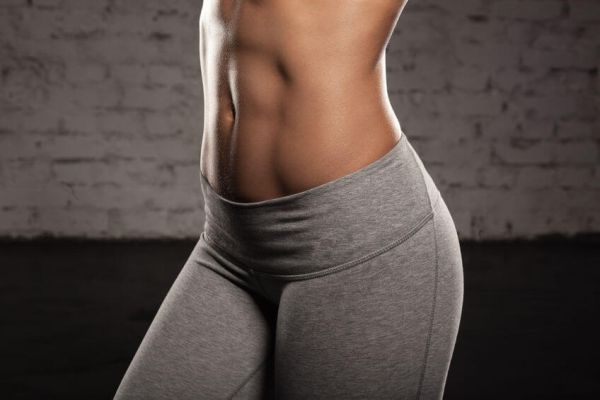
If exercise can improve just about every aspect of your life, obesity is its antithesis.
A staggering number of physiological and psychological benchmarks are undermined by being overweight, including sleep hygiene.
Obesity and sleep have a particularly vicious relationship, too.
Being overweight impairs sleep and impaired sleep disrupts hormones related to the appetite, which promotes overeating.
Don’t fall into this tailspin. Maintain a healthy body composition and better sleep will be one of the many rewards.
5. Create a Relaxing Pre-Sleep Routine

How many times have you laid in bed with your eyes popping out of your skull and your mind racing?
And how many times was this preceded by stressful or stimulating conversations or activities?
Well, that’s why you should help your body relax before going to bed instead.
For example, many successful pre-sleep routines include bathing, reading a book, listening to calming music, and stretching or doing breathing exercises.
For me, it’s reading and listening to calming music.
6. Think “Dark, Quiet, and Cool”
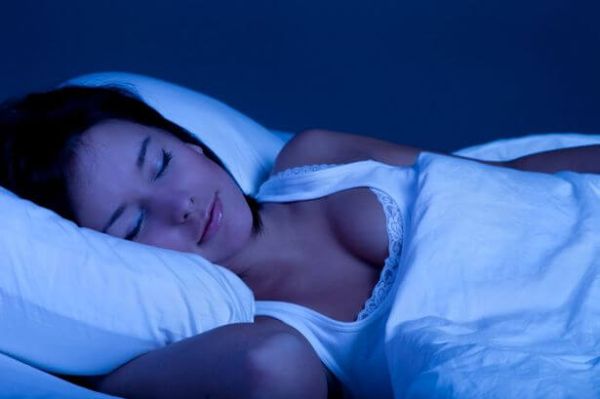
These are all powerful cues for the brain to put the body to sleep.
- By “dark,” I mean pitch black, because even low levels of artificial light can disrupt sleep.
- By “quiet,” I mean as free of noise as possible.
When you’re asleep, your brain still processes sounds on a basic level and even if they don’t wake you up, they can cause negative shifts in sleep stages and increases in blood pressure and heart rate.
- By “cool,” I mean between 60 and 67 degrees F.
Research shows that this is the ideal range for helping your body lower its core temperature for sleep.
There are metabolic benefits to sleeping in colder environments as well. Studies show that it can increase brown fat stores, which increases the basal metabolic rate.
7. Take the Right Supplements
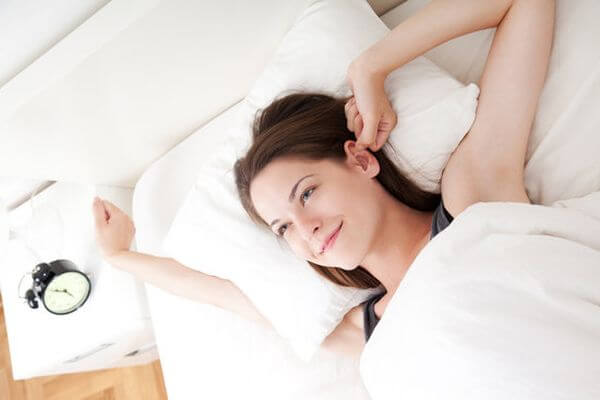
If you want to improve your sleep, you want to address lifestyle before turning to supplements.
If you’ve done that, though, and want to sleep even better, then it makes sense to look to supplementation.
When you review the literature on natural sleep aids, though, you’ll find that there aren’t many natural, safe, and non-habit-forming ingredients scientifically proven to improve sleep quality.
For example, valerian root is a popular natural sleep aid, but a large meta-analysis published recently found it to be generally ineffective.
Kava is another often-recommend sleep supplement, and while research shows it can improve sleep quality, studies also show it may be toxic to the liver.
There are several supplements, though, that meet our criteria of proven safety and effectiveness.
Glycine
Glycine is an amino acid and neurotransmitter found mainly in foods that contain gelatin, like meat and various types of seafood.
Studies show that supplementation with glycine before bed…
- Reduces the time it takes to fall asleep.
- Improves sleep quality.
- Reduces feelings of fatigue caused by impaired sleep.
- Improves cognitive performance when sleep is impaired.
The clinically effective dosage of glycine is 3 grams.
Melatonin
Melatonin is a hormone produced by the brain that regulates sleep. It’s also found in foods like tomato, walnuts, strawberries, and olive oil.
Although melatonin is a “go-to” supplement for improving sleep quality, and it can help in this regard, maintaining proper sleep cycles is more important. No amount of melatonin supplementation can compensate for what is lost through poor sleep hygiene.
That said, research does show that supplementation with melatonin…
- Reduces the time it takes to fall asleep.
- Can improve sleep quality for those with insomnia.
- Reduces symptoms of jet lag.
- Can improve memory encoding.
The clinically effective dosage of melatonin ranges between 500 micrograms and 5 milligrams.
You should also know that the benefits of melatonin aren’t dose-dependent, which means taking more will not help you fall asleep faster.
Furthermore, it means that if your body doesn’t respond to the low end of the clinically effective range, a larger dosage is unlikely to help (but the chances of experiencing negative side effects, like grogginess, increase).
Lemon Balm Extract
Lemon balm (Melissa officinalis) is an herb that has been used medicinally since ancient Greek times to relieve anxiety and agitation and promote sleep.
Research shows that supplementation with lemon balm…
- Improves sleep quality.
- Reduces feelings of anxiety and stress and induces feelings of calmness.
- Improves memory.
- Reduces symptoms of anxiety-related insomnia.
The clinically effective dosage of lemon balm ranges between 300 and 1,200 milligrams.
Now, you could buy each of these supplements separately, or you could save money and buy them together…in my 100% natural sleep aid LUNAR.
LUNAR is part of my supplement line, and it contains 30 servings of the following…
- 3 grams of glycine
- 500 micrograms of melatonin
- 600 milligrams of lemon balm
As well as 100 milligrams of a little-known molecule, rutaecarpine.
Rutaecarpine is found in the Evodia rutaecarpa plant, which produces berries that have been used in Traditional Chinese Medicine to raise body temperature and reduce pain and gastrointestinal distress.
Extracts of the plant’s fruit are being investigated for potential thermogenic and anti-cancer properties, but research on these effects is too preliminary to draw conclusions just yet.
What is well established, however, is the rutaecarpine molecule found in the fruit significantly reduces caffeine levels in the body.
I chose to include this in LUNAR because it helps address a common problem that athletes and gymgoers run into: ingesting caffeine before late-day workouts disrupts sleep.
Having caffeine before a workout provides several notable benefits: more strength, muscle endurance, and anaerobic exercise capacity.
It also interferes with sleep, and more significantly than many people realize. Studies show that that 400 milligrams of caffeine–a little more than the amount found in one serving of most pre-workout supplements–taken up to 6 hours before going to bed reduces sleep by more than one hour.
This means that many people that exercise later in the day simply can’t have caffeine, which isn’t ideal for maximizing performance and results.
Rutaecarpine helps mitigate this drawback by eliminating caffeine from the body, allowing for both pre-workout caffeine consumption and restful sleep.
So, if you want to relax and fall asleep faster, sleep longer and deeper, and wake up feeling refreshed…without resorting to habit-forming drugs or supplements…then you want to try LUNAR today.
The Bottom Line on How to Sleep Better
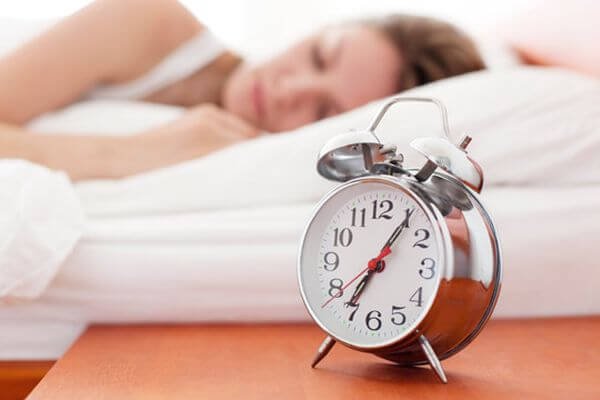
The quality of your life depends greatly on how well you sleep:
- Your physical immunity
- Your mood
- Your physical and mental performance
- Your appetite
And sleep deprivation not only results in a cumulative biological cost, its effects aren’t always obvious to its victims.
For example, in one study, three groups of participants slept 8, 6, and 4 hours per night, respectively, for two weeks.
The 4- and 6-hour groups experienced steady declines in cognition and motor skills throughout the entire period, but believed they were affected negatively for just a few days and thereafter had “adapted” to the lesser amount of sleep.
In other words, we’re not good at judging just how much sleep deprivation affects us, and especially with modern fast-paced (and caffeine-fueled) living.
So, while you can “get by” on less-than-optimal sleep, why not strive for something better?
Use the strategies outlined in this article to sleep better than ever before and you may be surprised at how much you benefit from it.
What’s your take on sleeping better? Have anything else to share? Let me know in the comments below!
Scientific References +
- C, D., T, R., J, S., & T, R. (2013). Caffeine effects on sleep taken 0, 3, or 6 hours before going to bed. Journal of Clinical Sleep Medicine : JCSM : Official Publication of the American Academy of Sleep Medicine, 9(11), 1195–1200. https://doi.org/10.5664/JCSM.3170
- TW, B., TJ, H., RJ, S., GO, J., DJ, H., JW, C., & MH, M. (2006). The acute effects of a caffeine-containing supplement on strength, muscular endurance, and anaerobic capabilities. Journal of Strength and Conditioning Research, 20(3), 506–510. https://doi.org/10.1519/18285.1
- TA, A., RL, R., & K, F. (2008). Effect of caffeine ingestion on one-repetition maximum muscular strength. European Journal of Applied Physiology, 102(2), 127–132. https://doi.org/10.1007/S00421-007-0557-X
- SK, L., NH, K., J, L., DH, K., ES, L., HG, C., HW, C., Y, J., & TC, J. (2004). Induction of cytochrome P450s by rutaecarpine and metabolism of rutaecarpine by cytochrome P450s. Planta Medica, 70(8), 753–757. https://doi.org/10.1055/S-2004-827207
- YF, U., TH, T., MJ, D., RM, C., & TL, C. (2005). Alteration of the pharmacokinetics of theophylline by rutaecarpine, an alkaloid of the medicinal herb Evodia rutaecarpa, in rats. The Journal of Pharmacy and Pharmacology, 57(2), 227–232. https://doi.org/10.1211/0022357055489
- TH, T., CH, C., & LC, L. (2005). Effects of Evodia rutaecarpa and rutaecarpine on the pharmacokinetics of caffeine in rats. Planta Medica, 71(7), 640–645. https://doi.org/10.1055/S-2005-871270
- K, N., YM, S., SK, L., SR, B., MJ, K., Y, J., E, K., W, K., & TC, J. (2011). Effects of rutaecarpine on the metabolism and urinary excretion of caffeine in rats. Archives of Pharmacal Research, 34(1), 119–125. https://doi.org/10.1007/S12272-011-0114-3
- Liao, C.-H., Pan, S.-L., Guh, J.-H., Chang, Y.-L., Pai, H.-C., Lin, C.-H., & Teng, C.-M. (2005). Antitumor mechanism of evodiamine, a constituent from Chinese herb Evodiae fructus , in human multiple-drug resistant breast cancer NCI/ADR-RES cells in vitro and in vivo. Carcinogenesis, 26(5), 968–975. https://doi.org/10.1093/CARCIN/BGI041
- Y, K., Y, N., M, K., K, H., Y, Y., & T, K. (2001). Capsaicin-like anti-obese activities of evodiamine from fruits of Evodia rutaecarpa, a vanilloid receptor agonist. Planta Medica, 67(7), 628–633. https://doi.org/10.1055/S-2001-17353
- DO, K., AB, S., NT, T., EK, P., & KA, W. (2002). Modulation of mood and cognitive performance following acute administration of Melissa officinalis (lemon balm). Pharmacology, Biochemistry, and Behavior, 72(4), 953–964. https://doi.org/10.1016/S0091-3057(02)00777-3
- DO, K., W, L., & AB, S. (2004). Attenuation of laboratory-induced stress in humans after acute administration of Melissa officinalis (Lemon Balm). Psychosomatic Medicine, 66(4), 607–613. https://doi.org/10.1097/01.PSY.0000132877.72833.71
- J, C., A, I., N, F., M, R., & SG, S. (2011). Pilot trial of Melissa officinalis L. leaf extract in the treatment of volunteers suffering from mild-to-moderate anxiety disorders and sleep disturbances. Mediterranean Journal of Nutrition and Metabolism, 4(3), 211–218. https://doi.org/10.1007/S12349-010-0045-4
- E, F.-O., A, Q., & MH, B. (2013). Meta-analysis: melatonin for the treatment of primary sleep disorders. PloS One, 8(5). https://doi.org/10.1371/JOURNAL.PONE.0063773
- U, R., M, S., C, B., OT, W., CS, W., U, E., & PH, W. (2009). Melatonin improves memory acquisition under stress independent of stress hormone release. Psychopharmacology, 202(4), 663–672. https://doi.org/10.1007/S00213-008-1344-Z
- A, H., & KJ, P. (2002). Melatonin for the prevention and treatment of jet lag. The Cochrane Database of Systematic Reviews, 2. https://doi.org/10.1002/14651858.CD001520
- P, L., T, N., M, L., & N, Z. (2007). Prolonged-release melatonin improves sleep quality and morning alertness in insomnia patients aged 55 years and older and has no withdrawal effects. Journal of Sleep Research, 16(4), 372–380. https://doi.org/10.1111/J.1365-2869.2007.00613.X
- IV, Z., RJ, W., C, M., VR, P., & HJ, L. (1996). Effects of low oral doses of melatonin, given 2-4 hours before habitual bedtime, on sleep in normal young humans. Sleep, 19(5), 423–431. https://doi.org/10.1093/SLEEP/19.5.423
- M, B., N, K., K, O., K, N., & N, M. (2012). The effects of glycine on subjective daytime performance in partially sleep-restricted healthy volunteers. Frontiers in Neurology, 3. https://doi.org/10.3389/FNEUR.2012.00061
- YAMADERA, W., INAGAWA, K., CHIBA, S., BANNAI, M., TAKAHASHI, M., & NAKAYAMA, K. (2007). Glycine ingestion improves subjective sleep quality in human volunteers, correlating with polysomnographic changes. Sleep and Biological Rhythms, 5(2), 126–131. https://doi.org/10.1111/J.1479-8425.2007.00262.X
- C, U., E, B., H, B., E, E., P, H., D, S., C, T., J, W., & S, B. (2005). Safety review of kava (Piper methysticum) by the Natural Standard Research Collaboration. Expert Opinion on Drug Safety, 4(4), 779–794. https://doi.org/10.1517/14740338.4.4.779
- S, L. (2004). Clinical efficacy of kava extract WS 1490 in sleep disturbances associated with anxiety disorders. Results of a multicenter, randomized, placebo-controlled, double-blind clinical trial. Journal of Affective Disorders, 78(2), 101–110. https://doi.org/10.1016/S0165-0327(02)00238-0
- MI, F.-S.-M., R, M.-F., L, P.-S., P, S.-G., C, C.-C., & G, F.-M. (2010). Effectiveness of Valerian on insomnia: a meta-analysis of randomized placebo-controlled trials. Sleep Medicine, 11(6), 505–511. https://doi.org/10.1016/J.SLEEP.2009.12.009
- P, L., S, S., J, L., AB, C., RJ, B., W, D., CD, W., KY, C., & FS, C. (2014). Temperature-acclimated brown adipose tissue modulates insulin sensitivity in humans. Diabetes, 63(11), 3686–3698. https://doi.org/10.2337/DB14-0513
- S, T., L, L., D, A., T, Y., & E, M. (2004). Short sleep duration is associated with reduced leptin, elevated ghrelin, and increased body mass index. PLoS Medicine, 1(3), 210–217. https://doi.org/10.1371/JOURNAL.PMED.0010062
- B, B., IM, S., N, Ø., S, W., A, F., S, P., & R, U. (2007). The association between sleep duration, body mass index and metabolic measures in the Hordaland Health Study. Journal of Sleep Research, 16(1), 66–76. https://doi.org/10.1111/J.1365-2869.2007.00569.X
- GS, P., D, P., MG, S., CV, D., SD, Y., S, T., & MT, de M. (2011). Effects of moderate aerobic exercise training on chronic primary insomnia. Sleep Medicine, 12(10), 1018–1027. https://doi.org/10.1016/J.SLEEP.2011.02.007
- E, M., M, I., M, O., T, M., & S, M. (2011). A before and after comparison of the effects of forest walking on the sleep of a community-based sample of people with sleep complaints. BioPsychoSocial Medicine, 5. https://doi.org/10.1186/1751-0759-5-13
- KG, B., KJ, R., & PC, Z. (2013). Exercise to improve sleep in insomnia: exploration of the bidirectional effects. Journal of Clinical Sleep Medicine : JCSM : Official Publication of the American Academy of Sleep Medicine, 9(8), 819–824. https://doi.org/10.5664/JCSM.2930
- S, B., M, G., J, B., M, H., U, P., & E, H.-T. (2010). High exercise levels are related to favorable sleep patterns and psychological functioning in adolescents: a comparison of athletes and controls. The Journal of Adolescent Health : Official Publication of the Society for Adolescent Medicine, 46(2), 133–141. https://doi.org/10.1016/J.JADOHEALTH.2009.06.018
- PY, Y., KH, H., HC, C., & MY, C. (2012). Exercise training improves sleep quality in middle-aged and older adults with sleep problems: a systematic review. Journal of Physiotherapy, 58(3), 157–163. https://doi.org/10.1016/S1836-9553(12)70106-6
- Chang, A.-M., Aeschbach, D., Duffy, J. F., & Czeisler, C. A. (2015). Evening use of light-emitting eReaders negatively affects sleep, circadian timing, and next-morning alertness. Proceedings of the National Academy of Sciences, 112(4), 1232–1237. https://doi.org/10.1073/PNAS.1418490112
- Holzman, D. C. (2010). What’s in a Color? The Unique Human Health Effects of Blue Light. Environmental Health Perspectives, 118(1), A22. https://doi.org/10.1289/EHP.118-A22
- Gooley, J. J., Chamberlain, K., Smith, K. A., Khalsa, S. B. S., Rajaratnam, S. M. W., Reen, E. Van, Zeitzer, J. M., Czeisler, C. A., & Lockley, S. W. (2011). Exposure to Room Light before Bedtime Suppresses Melatonin Onset and Shortens Melatonin Duration in Humans. The Journal of Clinical Endocrinology and Metabolism, 96(3), E463. https://doi.org/10.1210/JC.2010-2098
- HP, L., C, R., DJ, D., & AA, B. (1996). Late-afternoon ethanol intake affects nocturnal sleep and the sleep EEG in middle-aged men. Journal of Clinical Psychopharmacology, 16(6), 428–436. https://doi.org/10.1097/00004714-199612000-00004
- DR, M., C, G., WA, M., ML, A., MS, C., LR, R., & S, T. (2014). Human longevity is associated with regular sleep patterns, maintenance of slow wave sleep, and favorable lipid profile. Frontiers in Aging Neuroscience, 6(JUN). https://doi.org/10.3389/FNAGI.2014.00134
- Mah, C. D., Mah, K. E., Kezirian, E. J., & Dement, W. C. (2011). The Effects of Sleep Extension on the Athletic Performance of Collegiate Basketball Players. Sleep, 34(7), 943. https://doi.org/10.5665/SLEEP.1132
- J, R., G, M., & C, T. (1988). A longitudinal study of depressed mood and sleep disturbances in elderly adults. Journal of Gerontology, 43(2). https://doi.org/10.1093/GERONJ/43.2.P45
- K, A., VL, R., O, L., EJ, R., DJ, S., & M, K. (2012). Diurnal rhythms in blood cell populations and the effect of acute sleep deprivation in healthy young men. Sleep, 35(7), 933–940. https://doi.org/10.5665/SLEEP.1954
- Brondel, L., Romer, M. A., Nougues, P. M., Touyarou, P., & Davenne, D. (2010). Acute partial sleep deprivation increases food intake in healthy men. The American Journal of Clinical Nutrition, 91(6), 1550–1559. https://doi.org/10.3945/AJCN.2009.28523
- U, W., S, G., H, H., R, V., & J, B. (2004). Sleep inspires insight. Nature, 427(6972), 352–355. https://doi.org/10.1038/NATURE02223
- Hershner, S. D., & Chervin, R. D. (2014). Causes and consequences of sleepiness among college students. Nature and Science of Sleep, 6, 73. https://doi.org/10.2147/NSS.S62907
- SR, P., X, Z., A, S.-I., R, M., NS, J., R, T., & S, R. (2009). Sleep duration and biomarkers of inflammation. Sleep, 32(2), 200–204. https://doi.org/10.1093/SLEEP/32.2.200
- B, R., & J, B. (2013). About sleep’s role in memory. Physiological Reviews, 93(2), 681–766. https://doi.org/10.1152/PHYSREV.00032.2012
- R, L., & E, V. C. (2011). Effect of 1 week of sleep restriction on testosterone levels in young healthy men. JAMA, 305(21), 2173–2174. https://doi.org/10.1001/JAMA.2011.710
- AV, N., JM, K., J, I., DA, S., & PD, P. (2010). Insufficient sleep undermines dietary efforts to reduce adiposity. Annals of Internal Medicine, 153(7), 435–441. https://doi.org/10.7326/0003-4819-153-7-201010050-00006
- DF, K., RD, L., & LE, K. (2012). Hypnotics’ association with mortality or cancer: a matched cohort study. BMJ Open, 2(1). https://doi.org/10.1136/BMJOPEN-2012-000850
- Florendo L Joya, Daniel F Kripke, Richard T Loving, Arthur Dawson, & Lawrence E Kline. (n.d.). Meta-analyses of hypnotics and infections: eszopiclone, ramelteon, zaleplon, and zolpidem - PubMed. Retrieved August 10, 2021, from https://pubmed.ncbi.nlm.nih.gov/19968019/
- LC, T., BM, T., G, C., MC, C., & DS, C. (2000). Central nervous system side effects associated with zolpidem treatment. Clinical Neuropharmacology, 23(1), 54–58. https://doi.org/10.1097/00002826-200001000-00011
- Kripke, D. F. (2007). Greater incidence of depression with hypnotic use than with placebo. BMC Psychiatry 2007 7:1, 7(1), 1–5. https://doi.org/10.1186/1471-244X-7-42










